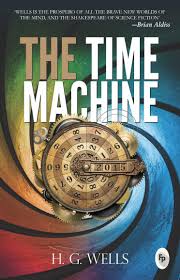In light of this, let's take a look at the life of Hitler. Presumably, on LFW Hitler could have made decisions other than the ones he actually made. Rather than become a dictator, he could have become a loving father or a good accountant. So let's get in our time machine and travel back to this meaningful decision in Hitler's life. "Should I become an accountant or should I pursue politics and dictatorship?"
If we travel back in time and Hitler makes the same decision, that would be interesting. If we repeated the process a million times and Hitler made the same decision a million times, that would be damning. For if Hitler always made the same choice under the same set of circumstances, that means Hitler really couldn't have chosen otherwise, at least not in any meaningful sense as those who hold to LFW would define "freedom" and "ability." Such a result would show us that Hitler was so determined by his nature, nurture, and character that he could only have ever made the choice that he made.
But what if we found the opposite. What if we traveled back a million times and found that Hitler's life looked significantly different each time. One time he became a beggar, one time a lover, one time a father, one time an accountant, one time a Christian, one time a dictator, and so on and so forth. Wouldn't that prove LFW? Whatever it would prove, it would not at all prove any hopeful notion of the will or moral culpability.
Today we view Hitler as a moral monster because Hitler did some absolutely terrible things. But we view him as a monster not merely because of what he did, but because we believe that what he did was representative of who he was. Hitler wasn't just some nice guy who did some bad things. Hitler's fate isn't just a result of a bad go-round, which, if given another play, would likely be different. If we knew that pressing the rewind button could give us a different Hitler, it would be awfully hard to believe that Hitler's horrendous actions were representative of Hitler. Rather, it would be more like Hitler was a product of this particular instantiation of time - a happenstance, genocidal, despot. But we know that's not the case. The evil Hitler perpetrated reflected who he truly was. But if we traveled back in time and found that each time Hitler made different choices - many of which ended up with Hitler becoming an upstanding guy - in what way could we say that our real Hitler's actions are representative of who he truly was? For Hitler's dictatorial and murderous course didn't come about for any reason. It was random. We can show that it's random because were we to "flip the coin" again, we'd get a different response. We didn't change any input, we just ran the program again. In this sense, while we could judge an individual for the decisions they made in any given situation, their judgment would not be based on who they were when they made their decisions, but rather on who they became as a result of their random choices.
So if we travel back in time and find an individual always makes the same decision, we know that their decision was determined in some sense. If we travel back in time and find that someone makes different decisions without any additional inputs, we know that decisions are randomly generated and not representative of who an individual truly is. In my view, I think it is far more reasonable to believe that our decisions are determined. There is a reason we choose what we do. But unlike materialists, I don't think that our decisions are determined by external factors, but rather by our natures. If I lust, I don't lust because a scantily clad woman made me lust, but because my wicked heart objectifies others, seeks my own pleasure, etc. Sure, I may not have lusted in the same way had a woman not dressed the way she did, but my character and my heart would have been the same without any external stimuli. My nature and character determine how I will handle external stimuli, my external stimuli don't determine me. In that sense, I am always culpable because my actions flow forth from who I am, and I would always make the same decision in a given situation because I am purely and truly who I am. We recognize that this boundedness to nature is not contrary to freedom when we recognize that God can't sin or change, so why should we have a problem with nature's true representation in humanity as well?




 RSS Feed
RSS Feed